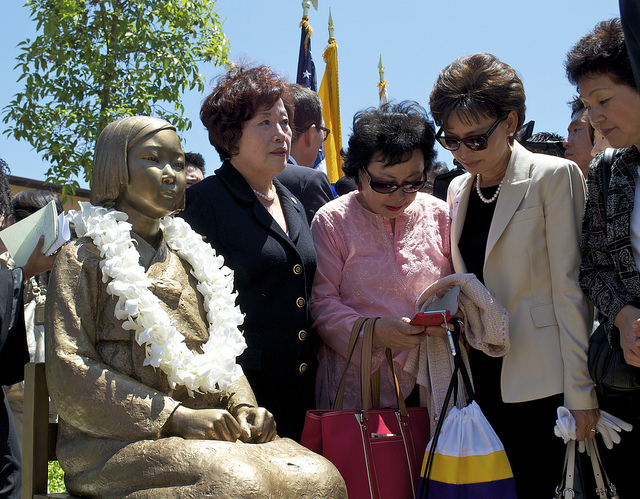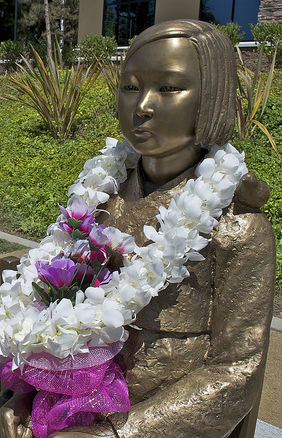Ayanna Nahmias, Editor-in-ChiefLast Modified: 23:31 PM EDT, 18 March 2012

MOROCCO – On Saturday, 17 March 2012, thousands of people around the world awoke to the horror of the suicide of a young girl who had been forced to marry her rapist.
Her rapist was given the option of marrying the girl under Article 475 of the Moroccan penal code. This antiquated law allows for a rapist to marry his victim to escape prosecution. It is a law that has been used to justify a traditional practice of ‘preserving’ the honor of the woman's family by making the victim marry her victimizer or face certain death.
Amina Al Filali, 16, swallowed rat poison yesterday in protest of her marriage to the man who raped her a year earlier. Rape victims face numerous challenges in seeking justice and healing, but in cultures where the ‘honor’ of the family outweighs the rights of its ‘less valued’ members, a rape victim can be placed in an untenable predicament.
Moroccan families of rape victims, who have availed themselves of this resolution, admit that they coerce the victims into marrying their rapists out of fear that she won’t be able to find a husband if the community finds out that she has been raped.
In many societies throughout Asia, the Middle East, and Africa, the loss of a woman's virginity prior to marriage, not only reduces her ‘value,’ but causes a great scandal which ‘injures’ the entire family. The rape victim is thereby sacrificed so that the males who did not protect her can absolve themselves of further responsibility.
In the photo above, a Pakistani woman, Mukhtar Mai, was gang-raped in 2002 on orders of a traditional village council as punishment for acts allegedly committed by her younger brother. Rather than retreat into silence or commit suicide (the expected response when dishonor is brought to a family), Mukhtar Mai testified against the perpetrators. She used the compensation money she later received to build schools and a shelter for abused women.
As in the States, the burden of proof of rape rest solely on the victim’s ability to prove she was attacked and that she didn’t ‘ask’ for it by putting herself in a compromising situation. In countries where ‘honor’ killings are prevalent, a woman risks being prosecuted for debauchery if she is unable to prove that she was raped.
In the case of Amina, according to her father, Lahcen Filali, the court pushed the marriage, even though the perpetrator initially refused. He only consented when faced with a potential 5 to 10 years in prison, which is the penalty under Moroccan law for rape. However, because Amina was a minor when she was raped, her attacker would have faced 10 to 20 years if he chose to go to court.
Immediately after the marriage, Amina complained to her mother that her husband was beating her repeatedly with increasing ferocity during the five short months of their marriage. Her mother as much a victim of societal pressure and expectations as her daughter, counseled patience.
Amina was subjected first to rape, then to a child-marriage, and finally to repeated physical and psychological abuse at the hands of her rapist. In a society where she had no voice, she chose the only option available to her, to take her own life.
Ironically, it may be this act of desperation that is giving voice to the countless others who are stuck in similar nightmares. Though Morocco updated its family code in 2004, Fouzia Assouli, a women’s rights activists and president of Democratic League for Women's Rights, says there remains a long road to achieve equality.
'It is unfortunately a recurring phenomenon,' she said. 'We have been asking for years for the cancellation of Article 475 of the penal code which allows the rapist to escape justice. In Morocco, the law protects public morality but not the individual and legislation outlawing all forms of violence against women, including rape within marriage, has been stuck in the government since 2006.’
In recent years, reports of young women who have been raped, and then sentenced to death by stoning, have been reported from Nigeria to Iran.
Last year the plight of rape victims in Afghanistan was featured in an European Union (EU) commissioned documentary about Afghan woman serving prison time for so-called “moral crimes.” The EU blocked the film’s release – saying it would endanger the women involved in the film. (Source: Aljazeera)
In an unfathomable abuse of justice, Gulnaz, 21, who was brutally raped by her husband’s cousin, was serving a 12-year sentence for adultery. While in prison, she was raising her infant daughter, who is the offspring of her attacker. By contrast, her rapist only received a 7-year sentence.
President Hamid Karzai, under immense international pressure finally agreed to pardon Gulnaz with ‘no conditions.’ Initial petitions for her freedom required that she marry her attacker, a stipulation which she categorically rejected.
Perhaps it was because of Amina’s youth, her parent’s pressure or unrelenting physical abuse, but unlike Gulnaz, Amina was not strong enough to hold onto hope or life. A Facebook page called 'We are all Amina Filali has been formed and an online petition calling for Morocco to end the practice of marrying rapists and their victims has already gathered more than 1,000 signatures.
Follow Nahmias Cipher Report on Twitter
Twitter: @nahmias_report
Editor: @ayannanahmias































